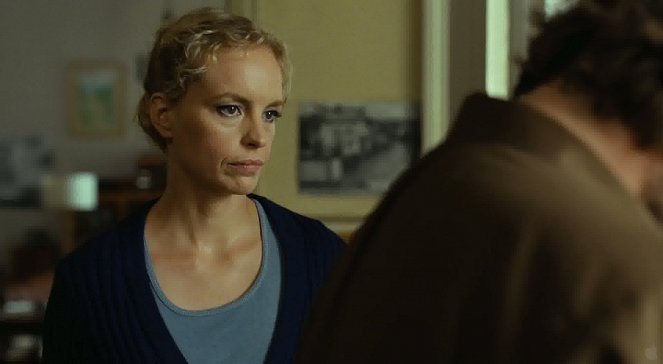Directed by:
Christian PetzoldScreenplay:
Christian PetzoldCinematography:
Hans FrommComposer:
Stefan WillCast:
Nina Hoss, Ronald Zehrfeld, Rainer Bock, Deniz Petzold, Jasna Fritzi Bauer, Peer-Uwe Teska, Mark Waschke, Kirsten Block, Susanne Bormann, Alicia von Rittberg (more)Plots(1)
East Germany, 1980. Barbara Wolff is a talented young doctor who has applied for an exit visa from the GDR and, as punishment, has been transferred from her prestigious post in Berlin to a small pediatric hospital in the country. Even though she is constantly aware of the very real shadowy presence of, and overwhelming numbers of Stasi officers chronicling her every move, every waking hour, she arrives at her new post having already planned a series of dangerous assignations with her lover, with whom she plans to escape to the West, to Poland.
To Barbara, everyone is suspect as a potential betrayer at her new hospital, everyone except the patients, who receive every ounce of her compassion and loyalty, without hesitation. One such potential enemy is a young doctor named Andre. Initially rejecting his overtures of friendship, she is perplexed by his talent, his determination, and his sincerity. It doesn't jive with the enemies she sees, and those she doesn't see, all around her. His side interests in art and music, which mirror her own, cause her to let down her guard a bit, and an attraction grows, an attraction she knows she can't afford to nurture.
In a rare moment of dual repose Andre confides to Barbara that he wound up at this particular post, in self-exile, after an intern whose work he was overseeing made a tragic, unintentional mistake that caused the blindness of two young children. As poignant as the story is Barbara can't help herself from asking, "Is the story true?"
A young female patient, Stella, arrives at the hospital suffering from meningitis. She immediately latches onto Barbara as the only doctor from whom she will allow treatment and visitation. Barbara takes on a maternal role in addition to her role as a healer as soon as she learns Stella is pregnant.
Life-turning decisions must be made: Will she permit Stella to be returned to a work camp once the meningitis is treated, a fate that will almost certainly imperil the life of Stella's unborn child; will she continue to fall in love with a doctor in whom she sees a kindred spirit, a relationship, should it flourish, that might doom her to remain in the East; will an escape plan hatched by her lover be carried out or thwarted when her prodigious medical skills are suddenly required to possibly save the life of a new patient?
BARBARA is a story of self-sacrifice and freedom and quiet heroism at a time and place when such values are at a premium. It is also about a healer whose morality and set of personal ethics are being called into questions by circumstances specific to that same time and place in history.
(Adopt Films)
Reviews (2)
Barbara is a solid drama, though unfortunately with a somewhat soap-opera-like ending that shows some lazy
screenwriting.
()
Barbara is a gem, and not only in comparison with strained, black-and-white Czech cinematic throwbacks to the period of normalisation. Petzold doesn’t work with flattening oppositions, as he takes multiple perspectives into account and confronts the titular protagonist with complex moral dilemmas. As with the other characters, Barbara is for us a woman of mystery who is hiding something. We don’t know what she is guilty of or what her intentions are. Based on the mistrustful glances of others, as well as on the way the camera captures her, it is apparent that Barbara is under constant surveillance. With her privacy gone, she has no reason to feel joy. She doesn't believe in happiness; fear is her predominant emotional state. Her helpfulness towards others is selfish. If she needs nothing, she does not allow others to physically approach her and she communicates with them in curt sentences. She prefers to express herself only by playing inoffensive music on the piano. Patients are an exception – a promise that it is possible to do something meaningful even in the depersonalised era of Communist torpor. Thanks to the ambiguous characters, attention to detail (sticking band-aids on ankles, leafing through a Western catalogue) and the subtle production design (the props don’t draw attention to themselves, but are just simply in the shot), the world of East Germany depicted in Barbara seems very authentic and not like an excursion to a museum of Communism. (A nice example of the unforced rendering of the reality of the time is the clash of two worlds, represented by a Trabant and a Mercedes on a forest road.) Whereas Czech filmmakers scream about how all Communists were swine and how hard life was for decent people, Petzold neither slips into such generalisations nor engages in a transparent attack on the system. He touches on the major history through a single small, intimate story, which does not prevent him from simultaneously capturing the atmosphere of the time and posing some timeless questions about a person’s responsibility for others. Barbara is an extraordinarily powerful drama even without powerful language. It simply works. 80%
()

